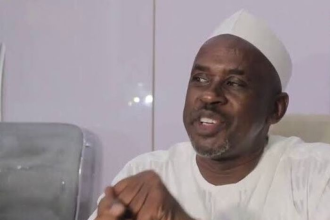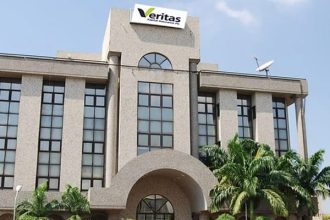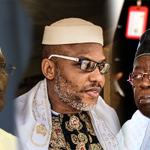The Federal Authorities has reacted to the World Financial institution’s current report indicating that about 139 million Nigerians live in poverty, saying the figures don’t precisely mirror the nation’s present realities.
In a submit on X, Sunday Dare, Particular Adviser on Media and Public Communication to President Bola Tinubu, stated whereas Nigeria values its partnership with the World Financial institution, the quoted determine have to be seen inside the suitable context.
“Whereas Nigeria values its long-standing partnership with the World Financial institution and the establishment’s contributions to coverage evaluation, the determine quoted have to be correctly contextualized.
Reassessing the “139 million in poverty” determine
Dare famous that there have to be warning towards decoding the World Financial institution’s quantity as a literal, real-time headcount. The estimate is derived from the worldwide poverty line of $2.15 per individual per day a benchmark set in 2017 Buying Energy Parity (PPP) phrases.
In his phrases: “If transformed nominally, that determine equals about $64.5 per 30 days, or practically N100,000 at at this time’s change fee properly above Nigeria’s new minimal wage of N70,000.
“Clearly, the measure is an analytical assemble, not a direct reflection of native revenue realities,” he stated
He defined that the World Financial institution’s poverty figures are based mostly on outdated knowledge and international modelling strategies that don’t absolutely seize Nigeria’s casual and subsistence economies the place Nigerians earn a dwelling from.
“The federal government subsequently regards the determine as a modelled international estimate, not an empirical illustration of circumstances in 2025. What actually issues is the trajectory and Nigeria’s is now certainly one of restoration and inclusive reform,” he added.
What World Financial institution stated
On the launch of the Nigeria Growth Replace in Abuja on Wednesday, the World Financial institution’s Nation Director for Nigeria, Mathew Verghis, recommended the Tinubu administration for implementing daring macroeconomic reforms, together with gasoline subsidy elimination and change fee unification.
He stated these measures had began to stabilise the financial system, enhance revenues, and scale back inflation.
“During the last two years, Nigeria has carried out main reforms across the change fee and petrol subsidy. These insurance policies have laid the muse for reworking the nation’s financial trajectory for many years to return,” Verghis stated.
He, nevertheless, cautioned that the advantages of those reforms had been but to succeed in many Nigerians.
“Regardless of these stabilisation positive aspects, many Nigerians are nonetheless struggling. In 2025, we estimate that 139 million Nigerians dwell in poverty. The problem is obvious: the best way to translate reform positive aspects into higher dwelling requirements for all,” he added.
Verghis emphasised that persistent meals inflation and provide challenges proceed to harm the poor and threaten public assist for the reforms. He famous that financial insurance policies alone should not sufficient and have to be backed by structural reforms to maintain progress.
Efforts to sort out poverty
The Minister highlighted that a number of authorities initiatives are already addressing the challenges recognized by the World Financial institution.
“Conditional Money Transfers (CCT): Expanded to succeed in as much as 15 million households nationwide, with verified digital enrolment by the Nationwide Social Register. Over N297 billion has been disbursed since 2023 to poor and susceptible households.
Renewed Hope Ward Growth Programme (RH-WDEP): A significant new initiative concentrating on all 8,809 electoral wards, delivering micro-infrastructure, livelihoods, and social providers straight at group degree.
Nationwide Social Funding Programmes (NSIPs): Strengthened elements resembling N-Energy, GEEP micro-loans (TraderMoni, MarketMoni, FarmerMoni), and Residence-Grown Faculty Feeding to guard jobs, encourage small enterprise, and hold youngsters in class.
Meals Safety Initiatives: Distribution of subsidised grains and fertilisers, mechanisation partnerships, and the revival of strategic meals reserves to curb inflationary stress on staples.
Renewed Hope Infrastructure Fund (RHIF): Financing important power, highway, and housing initiatives to decrease dwelling prices and stimulate native employment.
Nationwide Credit score Assure Firm (NCGC): Increasing reasonably priced credit score to small companies, girls, and youth entrepreneurs by risk-sharing mechanisms with business banks,” he talked about
- He stated the administration is redirecting fiscal sources towards productive sectors whereas investing in agriculture, MSMEs, and energy reliability to scale back dwelling prices and create sustainable jobs.
- “Financial restoration alone isn’t sufficient; it have to be inclusive. The federal government’s medium-term focus is on guaranteeing that macroeconomic stability leads to tangible positive aspects for residents—by reasonably priced meals, high quality jobs, and dependable infrastructure,” he stated.
- Based on him, Nigerians ought to start to expertise higher entry to reasonably priced meals, larger incomes, and stronger buying energy because the administration’s programmes mature
Observe us for Breaking Information and Market Intelligence.




SOURCE PAGE










![Nigerians play politics of power – New INEC Chairman Amupitan’s old interview resurfaces [VIDEO] Nigerians play politics of power – New INEC Chairman Amupitan’s old interview resurfaces [VIDEO]](https://informationhub.com.ng/wp-content/uploads/2025/10/Joash-Ojo-Amupitan-330x220.jpg)







